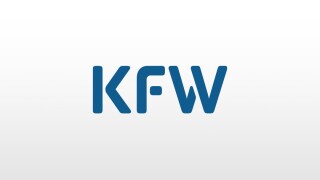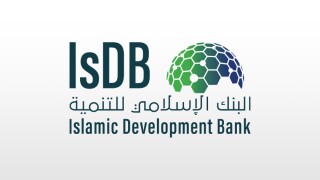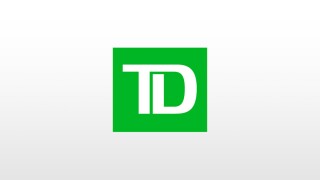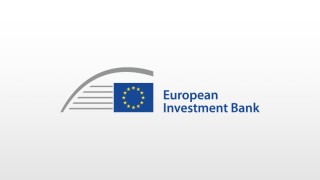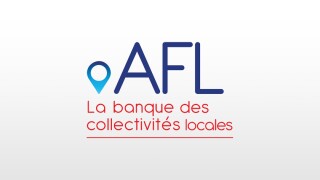-
Sponsored by Emirates NBD CapitalOnce viewed as an important but additive source of investor demand, Middle East liquidity has grown into a force shaping deal economics across the international debt and equity markets
-
Sponsored by Standard CharteredIn recent years, Standard Chartered has expanded its structured credit and securitized products in both emerging and developed markets — establishing a strong footprint in private securitization and asset-backed lending. Tanja Petrovic, John-Paul Parker and Amit Padhye of Standard Chartered Bank describe the challenges and opportunities ahead
-
Sponsored by NumerixStructured finance issuance rebounded in 2025, buoyed by refinancing requirements and a yield-hungry investor base. As the new year approaches, all eyes are on the trends that will create risks and opportunities over the next 12 months. GlobalCapital spoke to leading analytics and risk-technology firm Numerix about key credit dynamics, investor behaviour and the technology shaping the market
-
Sponsored by Herbert Smith Freehills KramerThe merger of Herbert Smith Freehills and Kramer Levin has created a legal heavyweight boasting over 2,600 lawyers spread across 26 offices worldwide. GlobalCapital spoke to Gilbert K.S. Liu, head of securitization in the US, and Michael Poulton, head of the firm’s London securitization practice, about the merger
-
Sponsored by AIIBThe suprantional's head of funding, Darren Stipe, discusses its work in the Panda and Wonton bond markets
-
Sponsored by KfWKfW is one of the leading issuers in the bond market, sometimes raising as much as €80bn across global bond markets each year. The German policy bank was at the forefront of green bond innovation and is positioning itself now to do the same thing in the digital bond market. All of this borrowing is done in the name of supporting Germany’s economic aims, making it an important global institution. That has become especially apparent since Germany’s new chancellor, Friedrich Merz, embarked earlier in the year on a vast infrastructure and defence spending programme, amid a time of low growth in the eurozone. Fresh from the World Bank/IMF Annual Meetings in October, and as part of KfW’s sponsorship of the GlobalCapital Podcast, its CEO Stefan Wintels talked to us about the difficulty in achieving global consensus, the importance of the green transition and the rise of the digital bond market.
-
Sponsored by Kirkland & EllisStructured finance is expanding as alternative credit grows, new asset classes emerge and investors demand more targeted capital solutions. Products that were once firmly securities are moving up the capital stack, blending with hybrid equity and fund-level structures. GlobalCapital spoke with Michael Urschel, a partner in Kirkland & Ellis’ Complex Securitizations Practice Group, about what is driving the market’s rapid transformation and where securitization is headed next
-
Sponsored by TradewebElectronic trading is evolving rapidly as market interconnection deepens and clients demand greater speed and cross-asset access. With innovation accelerating, the next challenge is turning connectivity into better liquidity and smarter execution. GlobalCapital spoke to the co-heads of international developed markets at Tradeweb, Nicola Danese and James Dale, about breaking down market silos, linking liquidity across products and the technologies set to shape the next chapter of electronic trading
-
Sponsored by LBBWPublic sector bond issuers navigated what turned out to be a sometimes volatile year in 2025 with aplomb. Many frontloaded issuance to derisk large borrowing programmes which stood them in good stead when choppier markets developed in response to US tariff policy and French political upheaval over its deficit, to name but two influences. Funding requirements among supranationals and agencies may prove little changed for the year ahead, but a host of factors are already visible that will influence how this group of borrowers approaches the bond market in 2026. Chief among them is the tightness of spreads to government bonds but there are others: further elevated government borrowing to fund defence and possibly even a new entrant to the market to raise money for that purpose; the evolving market for ESG investment; digitalisation of the bond market; and the rotation out of US Treasury holdings by international investors. GlobalCapital gathered a number of the SSA market’s key issuers in London in November to discuss how they will set about meeting these challenges.
-
Sponsored by Islamic Development Bank (IsDB)This year, the outstanding volume of the Sukuk market exceeded $1 trillion for the first time. H.E. Dr Muhammad Al Jasser, President of the Islamic Development Bank, explains that this market is now integrated into global finance, promoting sustainable investment and transparency
-
Sponsored by Traton GroupAs the move toward vehicle electrification gathers pace, the TRATON GROUP with support from SEB has unveiled a cutting-edge Green Finance Framework to back the group’s investments in battery-electric vehicles and prepare for a rising BEV-related financial services business. GlobalCapital spoke to Philipp Lotz, Head of Corporate Funding at TRATON, and Fredrik von Platen, Sustainable Finance Director at SEB, about TRATON’s green ambitions, the thinking behind the framework and what they are hearing from investors.
-
Sponsored by QIBQIB has been proud to play a central role in supporting Qatar’s economic transformation, particularly during the unprecedented phase of growth leading up to the FIFA World Cup 2022.
-
Sponsored by NumerixWith markets facing volatility, tighter regulation and digital change, technology providers are under pressure to deliver. Numerix — winner of Global Capital’s awards for Pricing & Valuation Provider of the Year and Risk Management Provider of the Year — has excelled through cutting-edge analytics, investment in R&D and a customer-centric approach. We spoke to the firm about how its solutions are helping clients navigate a rapidly evolving derivatives landscape.
-
Sponsored by LSEGPost Trade Solutions’ award-winning optimisation services have been a feature of the derivatives market for years, previously delivered under the Quantile brand. In 2025, its pivotal role in reducing client costs and tackling the industry’s fragmented approach to post-trade data saw it recognised once again as Optimisation Provider of the Year.
-
Sponsored by TD SecuritiesFunding agreement-backed notes (FABNs) are flourishing. For years a respected but relatively niche part of US insurance finance, they have matured into a sector in their own right. Providing issuers with cost-effective funding and investors with stability and spread, FABNs have become the definition of a low-beta credit product — one that institutional capital on both sides of the Atlantic is eager to hold.
-
Sponsored by Derivative PathSince its beginnings in the mid-market bank sector, Derivative Path has expanded to become a trusted partner for sophisticated clients ranging from private equity and asset management to pension funds and insurers. Blending advisory expertise with a cloud-native technology platform, the firm provides powerful, integrated solutions to meet the full spectrum of risk-management needs. To celebrate its wins as both Risk Management Advisory Firm and Derivatives Technology Provider of the Year, GlobalCapital spoke to Chief Revenue Officer, Rob Showers about what makes the firm’s model so valuable, recent innovations to its platform and the trends that will shape the derivatives market in the years ahead.
-
Sponsored by LBBWLBBW and Berlin Hyp picked up awards across the full spectrum of the covered bond market this year — from ESG leadership and innovation to issuance and team excellence. Now merged into a single entity, the recognition highlights both issuers’ legacy and the momentum they carry forward as one combined institution.
-
Sponsored by Erste GroupWith deep roots in Central and Eastern Europe and a growing presence on the international stage, Erste Group has established itself as one of the most dynamic players in the covered bond market. This year, the firm was recognised as Best Bank for Distribution while DCM syndicate head Mladen Djurdjevic won Best Syndicate Banker. To celebrate these successes, GlobalCapital spoke to Maxim Börsig, Head of FIG origination, and award winner Djurdjevic about what sets Erste apart, the trends reshaping investor demand and the opportunities ahead in covered bonds.
-
Sponsored by Nordea Asset ManagementAmid market volatility, shifting rate regimes and geopolitical uncertainty, institutional investors are turning to fixed income instruments that offer safety, liquidity and resilience. Covered bonds excel across all three criteria, and no investor has more expertise in the asset class than Nordea Asset Management. Distinguished by its size, skill and strategy, the firm was a standout winner in the Covered Bond Investor of the Year category. GlobalCapital spoke to Henrik Stille, the firm’s Head of Fixed Income Rates, about Nordea Asset Management’s approach to the market and why covered bonds are attracting sophisticated capital on the hunt for alternatives to sovereign and corporate debt.
-
Sponsored by Natixis CIBNatixis CIB is no stranger to industry accolades for its leadership in commodities. This year’s award for equities, on the other hand, marks a new milestone and reflects the bank’s ability to deliver cutting-edge products across markets. GlobalCapital spoke to Guillaume Calvino, Global Head of Equity Structuring, Claude Lixi, Global Head of Commodities markets and Richard Gibson, Global Head of Commodities Sales, about how the bank is broadening its franchise, developing solutions and navigating volatile markets.
-
Sponsored by MarketAxessA commitment to coverage, network and data, and an aversion to complacency has seen MarketAxess claim the award for Best Secondary Market Trading Platform for Emerging Markets Bonds for the third successive time at this year’s GlobalCapital Bond Awards. We spoke to Dan Burke, the firm’s Global Head of Emerging Markets, about market dynamics, product innovation and the future of secondary bond trading in emerging markets (EM).
-
Sponsored by European Investment BankA pioneer in sustainable finance, the European Investment Bank (EIB) plays a unique role as both the largest issuer of green bonds and a promoter of best practice in an evolving landscape. As the market is starting to take the new European Green Bond Standard (EuGBS) as a reference, the bank has issued the largest EuGBS-aligned deal to date — a transaction that showcased investor appetite and confidence in the standard’s transformational potential. GlobalCapital spoke to Cyril Rousseau, Director General of the EIB’s Finance Directorate, about the debut deal, the new framework’s significance and the bank’s approach to issuance going forward.
-
Sponsored by Republic of Côte d’IvoireOnce on the margins of global finance, the Republic of Côte d’Ivoire is now seen as a model for effective debt management. The nation’s methodical, prudent and innovative approach — combined with a strong commitment to long-term debt sustainability — earned it a rare double recognition in GlobalCapital’s latest bond awards. In addition to taking home the Most Impressive Issuer in Africa award, Lanciné Diaby, Director General of Côte d’Ivoire’s Direction Générale des Financements (DGF), was recognised as the continent’s Most Impressive Funding Official.
-
Sponsored by AFL (Agence France Locale)Created 10 years ago by and for French local governments, AFL’s mission is to facilitate the latter’s access to funding. 2024 was a record year for the bank, which topped 1,000 members for the first time and granted loans worth €2bn during the year. Today, AFL ranks among the leading lending institutions for the French local public sector. Yves Millardet, chairman of AFL’s management board, looks back at these 10 years of growth and discusses the prospects for future development
-
Sponsored by Mayer BrownFrom pioneering art loan backed securitizations to fund finance and capital call ABS, Mayer Brown continues to redefine the boundaries of structured finance. After topping league tables for deal volume and activity in 2024, the firm decisively defended its title as ABS Law Firm of the Year — and added ESG Law Firm of the Year to its accolades. GlobalCapital spoke with Julie Gillespie and Ger O’Donnell, co-heads of the firm’s Structured Finance Practice, and Anna Pinedo, co-head of the global Capital Markets Group, about the highlights from another stellar year.
-
Sponsored by DBRS MorningstarEurope is witnessing a boom in data centre construction. Developers are struggling to meet soaring demand for cloud and AI infrastructure amid challenges around land availability, energy costs and environmental regulation. GlobalCapital spoke to Mirco Iacobucci, Senior Vice President and Sector Lead for European Commercial Real Estate Ratings at Morningstar DBRS, about key growth markets, risks facing the industry and the growing role of capital markets
-
Sponsored by NordicTrusteeFor years the leading provider of trustee and agency services in its home region, Nordic Trustee has broken into the UK in stellar fashion. GlobalCapital spoke to Anatoly Sorin, Nordic Trustee’s Head of UK, about the firm’s first year in a new market, its recent launch of bond trustee services and what sets a great trustee apart from its peers
Sponsors
-
Sponsored by Barclays
-
Sponsored by BNY
-
Sponsored by China Southern Asset Management
-
Sponsored by CGIF
-
Sponsored by CIB
-
Sponsored by Citi
-
Sponsored by Commerzbank
-
Sponsored by CreditSights
-
Sponsored by CSC
-
Sponsored by DZ Bank
-
Sponsored by Euroclear
-
Sponsored by Euromoney Country Risk
-
Sponsored by European Investment Bank
-
Sponsored by EQ Credit Services
-
Sponsored by GlobalCollateral
-
Sponsored by HSBC
-
Sponsored by KfW
-
Sponsored by Moody's Investors Service
-
Sponsored by Ocorian
-
Sponsored by OTP Global Markets
-
Sponsored by RBC Capital Markets
-
Sponsored by Raiffeisen Bank International
-
Sponsored by Société Générale
-
Sponsored by TD Securities
-
Sponsored by UniCredit
-
Sponsored by Vistra
-
Sponsored by Wiener Börse






